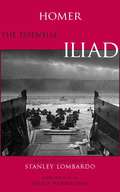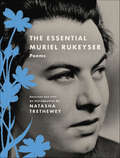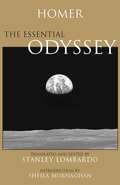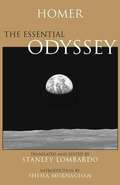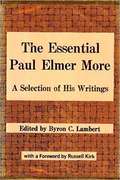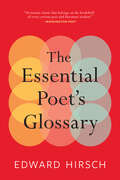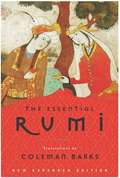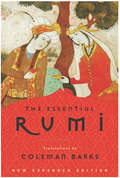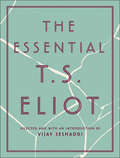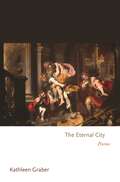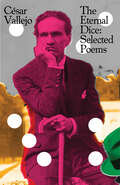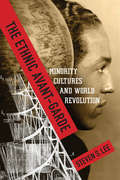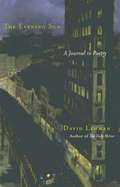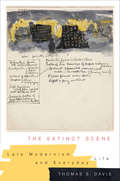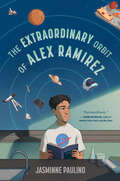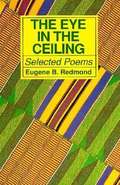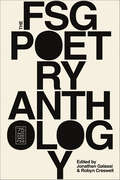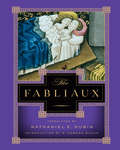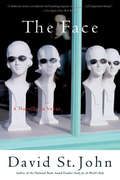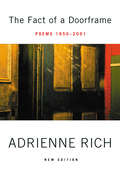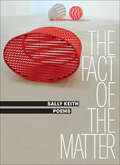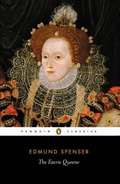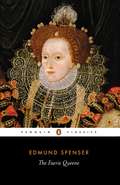- Table View
- List View
The Essential Iliad
by Homer Stanley Lombardo Sheila MurnaghanWhile preserving the basic narrative of the Iliad, this selection also highlights the epic's high poetic moments and essential mythological content, and will prove especially useful in surveys of world literature.
The Essential Muriel Rukeyser: Poems
by Muriel RukeyserThe definitive edition of selected work from a poet whose influence continues to be widely felt today, introduced by Natasha TretheweyEngaging closely with the violence, oppression, and injustice that she witnessed in her lifetime, Muriel Rukeyser was one of the seminal poets of the mid-twentieth century. Closely informed by issues relating to equality, social justice, feminism, and Judaism, her impassioned poetry was often seen as a mode of social protest, but it was also heralded for its deep emotional impact; its personal perspective; forthright discussion of the female experience, particularly sex and single parenthood at a time when these topics were largely taboo; and its wide-ranging exploration of genre and form. As Adrienne Rich wrote: “Muriel Rukeyser’s poetry is unequalled in the twentieth-century United States…She pushes us…to enlarge our sense of what poetry is about in the world, and of the place of feelings and memory in politics.”The Essential Muriel Rukeyser represents the curation of Rukeyser’s most enduring and urgent work, gathered in one volume that spans the many decades of her life and career, and with an introduction from Natasha Trethewey, one of our most important contemporary poets.
The Essential Odyssey
by Homer Stanley Lombardo Sheila MurnaghanThis generous abridgment of Stanley Lombardo's translation of the Odyssey offers more than half of the epic, including all of its best-known episodes and finest poetry, while providing concise summaries for omitted books and passages. Sheila Murnaghan's Introduction, a shortened version of her essay for the unabridged edition, is ideal for readers new to this remarkable tale of the homecoming of Odysseus.
The Essential Odyssey (abridged)
by Homer Stanley Lombardo Sheila MurnaghanThis abridgement of the Odyssey offers nearly half of the text of Stanley Lombardo's 2000 translation of the complete epic and provides narrative bridges for omitted passages.
The Essential Paul Elmer More: A Selection of His Writings
by Paul Elmer More Byron C. LambertThe Essential Paul Elmer More: A Selection of His Writings. Edited with an introduction and notes by Byron C. Lambert. Foreword by Russell Kirk.
The Essential Poet's Glossary
by Edward HirschA Poet’s Glossary was an extraordinary achievement that continues to stand as a definitive source for poets and poetry lovers alike. Here, The Essential Poet’s Glossary gleans the very best from that extraordinary volume. "An instant classic that belongs on the bookshelf of every serious poet and literature student."—Washington PostChancellor of the Academy of American Poets Edward Hirsch has compiled poetic terms spanning centuries and continents, including forms, devices, movements, aesthetics, rhetorical terms, and folklore. Knowing how a poem works is crucial to unlocking its meaning—entries will deepen readers’ relationships with their favorite poems and open greater levels of understanding in each new poem they encounter. Shot through with the enthusiasm, authority, and sheer delight that made A Poet’s Glossary and How to Read a Poem so beloved, this Essential edition is the book that all readers, writers, teachers, and students of poetry will return to again and again.
The Essential Rumi (New Expanded Edition)
by Coleman BarksThis revised and expanded edition of the comprehensive one-volume edition of the ancient poet includes a new introduction by Coleman Barks, and 57 new poems never published before.
The Essential Rumi - reissue: New Expanded Edition (Essential Booksales Ser.)
by Coleman BarksThe best-selling Rumi book ever is now better than ever! This revised and expanded edition of the comprehensive one-volume edition of America's most popular poet includes a new introduction by Coleman Barks, and 57 new poems never published before. The ecstatic, spiritual poetry of Rumi is more popular than ever, and The Essential Rumi continues to be far and away the top-selling title of all Rumi books. With the addition of many new poems and a new introduction, The Essential Rumi is now clearly the definitive, and most delightful selection of Rumi's poetry.
The Essential T.S. Eliot
by T.S. EliotA selection of the most significant and enduring poems from one of the twentieth century’s major writers, chosen and introduced by Vijay SeshadriT.S. Eliot was a towering figure in twentieth century literature, a renowned poet, playwright, and critic whose work—including “The Love Song of J. Alfred Prufrock” (1915), The Waste Land (1922), Four Quartets (1943), and Murder in the Cathedral (1935)—continues to be among the most-read and influential in the canon of American literature. The Essential T.S. Eliot collects Eliot’s most lasting and important poetry in one career-spanning volume, now with an introduction from Vijay Seshadri, one of our foremost poets.
The Eternal City: Poems (Princeton Series of Contemporary Poets #55)
by Kathleen GraberFinalist for the National Book Award and the National Book Critics Circle AwardWith an epigraph from Freud comparing the mind to a landscape in which all that ever was still persists, The Eternal City offers eloquent testimony to the struggle to make sense of the present through conversation with the past. Questioning what it means to possess and to be possessed by objects and technologies, Kathleen Graber’s award-winning second collection of poetry brings together the elevated and the quotidian to make neighbors of Marcus Aurelius, Klaus Kinski, Walter Benjamin, and Johnny Depp. Like Aeneas, who escapes Troy carrying his father on his back, the speaker of these intellectually and emotionally ambitious poems juggles the weight of private and public history as she is transformed from settled resident to pilgrim.
The Eternal Dice: Selected Poems
by César VallejoOne of the great poetic innovators of the 20th century, the Peruvian poet Cesar Vallejo now has a translator worthy of his genius The Peruvian poet César Vallejo—one of Latin America’s most famous poets—was involved in various literary circles and began publishing his poems in 1914 in magazines, after discovering the works of Walt Whitman, the French symbolists, and the modernist Nicaraguan poet Rubén Dario. He brought out his first book of poems in 1919, Los heraldos negros, and in 1922, he published his famous Trilce, which met a cool reception. Vallejo spent many years of his life in Europe—in Paris and Spain. Like many of the surrealists, he became a Marxist, and he was an ardent supporter of the Republican cause during the Spanish Civil War. In his poems, Vallejo poignantly describes human misery, isolation, and anguish. As the translator Margaret Jull Costa explains: “Vallejo edited and redrafted and honed his poetry. This is the only way in which he could describe the antithetical, paradoxical, oxymoronic universe he was living in, by using language at full tilt, making it perform all kinds of acrobatics. The resulting poems often defy interpretation…” This marvelous new bilingual selection of poems spanning his career up to his early death confirms Robert Hass’s assessment that Vallejo was “one of the essential poets of the twentieth century, a heartbreaking and groundbreaking writer.”
The Ethnic Avant-Garde: Minority Cultures and World Revolution (Modernist Latitudes)
by Steven S. LeeDuring the 1920s and 1930s, American minority artists and writers collaborated extensively with the Soviet avant-garde, seeking to build a revolutionary society that would end racial discrimination and advance progressive art. Making what Claude McKay called "the magic pilgrimage" to the Soviet Union, these intellectuals placed themselves at the forefront of modernism, using radical cultural and political experiments to reimagine identity and decenter the West. Shining rare light on these efforts, The Ethnic Avant-Garde makes a unique contribution to interwar literary, political, and art history, drawing extensively on Russian archives, travel narratives, and artistic exchanges to establish the parameters of an undervalued "ethnic avant-garde." These writers and artists cohered around distinct forms that mirrored Soviet techniques of montage, fragment, and interruption. They orbited interwar Moscow, where the international avant-garde converged with the Communist International. The book explores Vladimir Mayakovsky's 1925 visit to New York City via Cuba and Mexico, during which he wrote Russian-language poetry in an "Afro-Cuban" voice; Langston Hughes's translations of these poems while in Moscow, which he visited to assist on a Soviet film about African American life; a futurist play condemning Western imperialism in China, which became Broadway's first major production to feature a predominantly Asian American cast; and efforts to imagine the Bolshevik Revolution as Jewish messianic arrest, followed by the slow political disenchantment of the New York Intellectuals. Through an absorbing collage of cross-ethnic encounters that also include Herbert Biberman, Sergei Eisenstein, Paul Robeson, and Vladimir Tatlin, this work remaps global modernism along minority and Soviet-centered lines, further advancing the avant-garde project of seeing the world anew.
The Evening Sun
by David LehmanThe eagerly awaited follow-up to his critically acclaimed collection The Daily Mirror, The Evening Sun gathers together 150 of David Lehman's favorite "daily poems" from 1999 and 2000 into a brilliant chronicle of a poet's heart and mind as the last century ends and a new one begins.
The Extinct Scene
by Thomas S. DavisIn 1935, the English novelist Stephen Spender wrote that the historical pressures of his era should "turn the reader's and writer's attention outwards from himself to the world." Combining historical, formalist, and archival approaches, Thomas S. Davis examines late modernism's decisive turn toward everyday life, locating in the heightened scrutiny of details, textures, and experiences an intimate attempt to conceptualize geopolitical disorder. The Extinct Scene reads a range of mid-century texts, films, and phenomena that reflect the decline of the British Empire and seismic shifts in the global political order. Davis follows the rise of documentary film culture and the British Documentary Film Movement, especially the work of John Grierson, Humphrey Jennings, and Basil Wright. He then considers the influence of late modernist periodical culture on social attitudes and customs, and, through a more nuanced understanding of the period, conducts original analyses of novels by Virginia Woolf, Christopher Isherwood, and Colin MacInnes; the interwar travel narratives of W. H. Auden, Christopher Isherwood, and George Orwell; the wartime gothic fiction of Elizabeth Bowen; the poetry of H. D.; the sketches of Henry Moore; and the postimperial Anglophone Caribbean works of Vic Reid, Sam Selvon, and George Lamming. By considering this varied group of writers, artists, and cultural leaders, Davis recasts late modernism as an art of scale: by detailing the particulars of everyday life, the movement could better project the large-scale undoing of history.
The Extinct Scene: Late Modernism and Everyday Life (Modernist Latitudes)
by Thomas DavisIn 1935, the English writer Stephen Spender wrote that the historical pressures of his era should "turn the reader's and writer's attention outwards from himself to the world." Combining historical, formalist, and archival approaches, Thomas S. Davis examines late modernism's decisive turn toward everyday life, locating in the heightened scrutiny of details, textures, and experiences an intimate attempt to conceptualize geopolitical disorder.The Extinct Scene reads a range of mid-century texts, films, and phenomena that reflect the decline of the British Empire and seismic shifts in the global political order. Davis follows the rise of documentary film culture and the British Documentary Film Movement, especially the work of John Grierson, Humphrey Jennings, and Basil Wright. He then considers the influence of late modernist periodical culture on social attitudes and customs, and presents original analyses of novels by Virginia Woolf, Christopher Isherwood, and Colin MacInnes; the interwar travel narratives of W. H. Auden, Christopher Isherwood, and George Orwell; the wartime gothic fiction of Elizabeth Bowen; the poetry of H. D.; the sketches of Henry Moore; and the postimperial Anglophone Caribbean works of Vic Reid, Sam Selvon, and George Lamming. By considering this group of writers and artists, Davis recasts late modernism as an art of scale: by detailing the particulars of everyday life, these figures could better project large-scale geopolitical events and crises.
The Extraordinary Orbit of Alex Ramirez
by Jasminne PaulinoA powerful debut novel in verse about a neurodivergent seventh grader who dreams of traveling to the stars one day.&“This story is about a boy who is certain of his own magic in the midst of the doubtful adults around him. A kid who knows not even the sky, but the stars are the limit. Which makes Paulino's debut...extraordinary.&” —Jason Reynolds, author of National Book Award finalist Look Both Ways and Newbery Honor Book Long Way DownSeventh grader Alex's favorite things to do are watching YouTube videos of rocket launches with his Papi and spending hours on the NASA website reading about astronauts and planets. He even dreams of going to space one day himself, and knows he'll have to study hard in order to get there.But Alex is in his grade's SC (self-contained) classroom, which means doing the same dull worksheets every day and reading books his sister read back in the third grade. Worst of all, being in SC means nobody thinks he's ready to join Ms. Rosef's mainstream science class—the class Alex knows will be the first step on his path to NASA.When his teacher says "not yet" for the millionth time, Alex decides it's time to make a change. Now he's ready to try everything he can to get the people in his life—his teachers, his parents, and the kids at school—to understand that he, Alex Ramirez, is capable of the extraordinary.
The Eye in the Ceiling
by Eugene B. RedmondThrough poetry, Redmond is constantly brewing words, distilling life's essences with such sincere passion, wisdom, love and commitment in order to fuel insights, reveal and dilate the closing pores of humanity to 'feel' the heat of Black Experience(s) since the leprous contact with the West.
The FSG Poetry Anthology
by Jonathan Galassi and Robyn CreswellTo honor FSG's 75th anniversary, here is a unique anthology celebrating the riches and variety of its poetry list—past, present, and futurePoetry has been at the heart of Farrar, Straus and Giroux's identity ever since Robert Giroux joined the fledgling company in the mid-1950s, soon bringing T. S. Eliot, John Berryman, Robert Lowell, and Elizabeth Bishop onto the list. These extraordinary poets and their successors have been essential in helping define FSG as a publishing house with a unique place in American letters. The FSG Poetry Anthology includes work by almost all of the more than one hundred twenty-five poets whom FSG has published in its seventy-five-year history. Giroux's first generation was augmented by a group of international figures (and Nobel laureates), including Pablo Neruda, Nelly Sachs, Derek Walcott, Seamus Heaney, and Joseph Brodsky. Over time the list expanded to includes poets as diverse as Yehuda Amichai, John Ashbery, Frank Bidart, Louise Glück, Thom Gunn, Ted Hughes, Yusef Komunyakaa, Mina Loy, Marianne Moore, Paul Muldoon, Les Murray, Grace Paley, Carl Phillips, Gjertrud Schnackenberg, James Schuyler, C. K. Williams, Charles Wright, James Wright, and Adam Zagajewski.Today, Henri Cole, francine j. harris, Ishion Hutchinson, Maureen N. McLane, Ange Mlinko, Valzhyna Mort, Rowan Ricardo Phillips, and Frederick Seidel are among the poets who are continuing FSG's tradition as a discoverer and promoter of the most vital and distinguished contemporary voices.This anthology is a wide-ranging showcase of some of the best poems published in America over the past three generations. It is also a sounding of poetry's present and future.
The Fabliaux
by R. Howard Bloch Nathaniel E. DubinBawdier than The Canterbury Tales, The Fabliaux is the first major English translation of the most scandalous and irreverent poetry in Western literature. Composed between the twelfth and fourteenth centuries, these virtually unknown erotic and satiric poems lie at the root of the Western comic tradition. Passed down by the anticlerical middle classes of medieval France, The Fabliaux depicts priapic priests, randy wives, and their cuckolded husbands in tales that are shocking even by today's standards. Chaucer and Boccaccio borrowed heavily from these riotous tales, which were the wit of the common man rebelling against the aristocracy and Church in matters of food, money, and sex. Containing 69 poems with a parallel Old French text, The Fabliaux comes to life in a way that has never been done in nearly eight hundred years.
The Fabulous Beasts
by Joyce Carol OatesThis collection of fifty-two poems from the author of Angel Fire and Anonymous Sins explores the annihilation of the time-bound ego, a liberating, sometimes terrifying experience for all who live within the 'fabulous beast' of history and nature. The poems explore the shifting, elusive point at which the inwardness of individual experience touches upon the larger consciousness of a species or an era, forming a connection with a 'self' that goes beyond subjectivity.
The Face
by David St. JohnA haunting and inventive book length sequence of poems from the distinguished author of Study for the World's Body. The Face is both fiercely lyrical and intimately conversational. Coming to terms with the failure of a great love, the speaker descends into his own dark night of the soul. Here are poems that explore the drama of the shattered self in a variety of voices, calling on memory to speak and imagination to make beauty from the shards. Slowly, the speaker reassembles his life and again finds faith in himself and the world. These poems reveal a swirling cinematic poetry of visionary scope; meditative and confessional in some moments, ironic and playful in others. Deeply passionate and raw in its candour, The Face may be for this generation of poets what Lowell's Life Studies and Ashbery's Self-Portrait in a Convex Mirror were.
The Fact of a Doorframe: Poems 1950-2001
by Adrienne RichA reissue of the classic Adrienne Rich selection, revised and expanded to cover the entirety of her career, with a new Introduction. The Fact of a Doorframe is the ideal introduction to Rich's opus, from her formative lyricism in A Change of Word (1951), to the groundbreaking poems of Diving into the Wreck (1973), to the searching voice of Fox (2001).
The Fact of the Matter: Poems
by Sally Keith“Part-epic, part-elegy” this collection presents “a wonderfully involuted tableau where ancient Greek myth . . . strip malls, and natural history swirl together” (Kenyon Review).In this intricately crafted poetry collection, Sally Keith shows the self as a crucible of force—that which compels us to exert ourselves upon the world, and meanwhile renders us vulnerable to it. Moving from the mundane to the profound, these poems re-imagine things great and small, constantly reorienting our relationship to matter, science, mythology, our internal selves.With poems remarkable in their clarity and captivating in their matter-of-factness, Keith examines the impossible and inevitable privacy of being a person in the world. As we seek to put everything in its place, we must also negotiate the inexorable pull toward the places we call home—one we alternately try and fail to resist.
The Faerie Queene
by Edmund Spenser Thomas P. Roche Jr. C. Patrick O'Donnell Jr.The Faerie Queene was one of the most influential poems in the English language. Dedicating his work to Elizabeth I, Spenser brilliantly united Arthurian romance and Italian renaissance epic to celebrate the glory of the Virgin Queen. Each book of the poem recounts the quest of a knight to achieve a virtue: the Red Crosse Knight of Holinesse, who must slay a dragon and free himself from the witch Duessa; Sir Guyon, Knight of Temperance, who escapes the Cave of Mammon and destroys Acrasiar's Bowre of Bliss; and the lady-knight Britomart's search for her Sir Artegall, revealed to her in an enchanted mirror. Although composed as a moral and political allegory, The Faerie Queene's magical atmosphere captivated the imaginations of later poets from Milton to the Victorians. This edition includes the letter to Raleigh, in which Spenser declares his intentions for his poem, the commendatory verses by Spenser's contemporaries and his dedicatory sonnets to the Elizabethan court, and is supplemented by a table of dates and a glossary.
The Faerie Queene
by Edmund SpenserThe Faerie Queene was the first epic in English and one of the most influential poems in the language for later poets from Milton to Tennyson. Dedicating his work to Elizabeth I, Spenser brilliantly united medieval romance and renaissance epic to expound the glory of the Virgin Queen. The poem recounts the quests of knights including Sir Guyon, Knight of Constance, who resists temptation, and Artegall, Knight of Justice, whose story alludes to the execution of Mary Queen of Scots. Composed as an overt moral and political allegory, The Faerie Queene, with its dramatic episodes of chivalry, pageantry and courtly love, is also a supreme work of atmosphere, colour and sensuous description.
